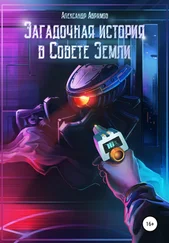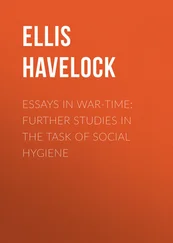Александр Абрамов - The Time Scale
Здесь есть возможность читать онлайн «Александр Абрамов - The Time Scale» весь текст электронной книги совершенно бесплатно (целиком полную версию без сокращений). В некоторых случаях можно слушать аудио, скачать через торрент в формате fb2 и присутствует краткое содержание. Жанр: Фантастика и фэнтези, на английском языке. Описание произведения, (предисловие) а так же отзывы посетителей доступны на портале библиотеки ЛибКат.
- Название:The Time Scale
- Автор:
- Жанр:
- Год:неизвестен
- ISBN:нет данных
- Рейтинг книги:4 / 5. Голосов: 1
-
Избранное:Добавить в избранное
- Отзывы:
-
Ваша оценка:
- 80
- 1
- 2
- 3
- 4
- 5
The Time Scale: краткое содержание, описание и аннотация
Предлагаем к чтению аннотацию, описание, краткое содержание или предисловие (зависит от того, что написал сам автор книги «The Time Scale»). Если вы не нашли необходимую информацию о книге — напишите в комментариях, мы постараемся отыскать её.
The Time Scale — читать онлайн бесплатно полную книгу (весь текст) целиком
Ниже представлен текст книги, разбитый по страницам. Система сохранения места последней прочитанной страницы, позволяет с удобством читать онлайн бесплатно книгу «The Time Scale», без необходимости каждый раз заново искать на чём Вы остановились. Поставьте закладку, и сможете в любой момент перейти на страницу, на которой закончили чтение.
Интервал:
Закладка:
‘And don’t you think, Mr Leszczycki…’I tried to stem this, to me, largely incomprehensible monologue, but Leszczycki interrupted me at once, starting like someone unexpectedly and rudely awakened. ‘Forgive me, Waek, I had forgotten you. Did you ever study mathematics?’
I mumbled something about logarithms.
‘That’s what I thought. Never mind. I’ll try to explain within those limits. We represent the physical essence of space time in an oversimplified form. It is more complex than it seems. If the chain of events in time, not just in the world but in the life of each individual, were represented by some kind of conventional line in four-dimensional space, then at each point along this line events and time would branch off, changing and varying along an infinite variety of paths, and at each point along these branches they would branch off again in different ways, and so on without end. It’s like a tree. Who can tell in which leaf the drop of sap that rises from the ground will emerge?’
‘You mean the victim can escape the murderer, the general can avoid the battle, if they turn along a different branch of time soon enough? You must be joking, Mr Leszczycki.’
But Leszczycki wasn’t joking. ‘Indisputably,’ he insisted. ‘You only have to find the turning point.’
‘And who can do that?’
‘I can, a little. Are you interested in why me?’
‘No. Why a little?’
‘The reconstruction of time even on the scale of a year is a complex process. A great deal of power is needed – thousands of millions of kilowatts – while I had to work like an alchemist, like the lonely scientist-psychopath who has probably crossed your mind. So for the time being I have only made a selector. The term is, of course, approximate, but the device has a selective bias: it selects the sector or turning point where the different system of reading begins. It has a capacity of not more than an hour, sometimes even less, depending on the intensity of your time, and it is according to this intensity that the selector is adjusted: it can choose from all the variations of your nearest future the most intense half-hour, or even hour.’
‘And then?’
‘You return to the starting point. The device isn’t adequate to deal with greater power. Of course, with the means and power which, let’s say, nuclear physics has at its disposal, I could reconstruct time on the scale of one century. And who’s to give me such means, you may ask? Presumably the Pentagon would. Hitler would have given half Europe for this possibility in forty-three. And when the Rockefellers understood its implications, I would be God. But at this point I say frankly, no, and shut up shop. Humanity is not yet adult enough for such a present.’
‘There are still the socialist states,’ I said.
‘Why would they want to reconstruct the future? They’re building it themselves on the rational premises of reality.’
‘Well, there’s the interests of science,’ I said, trying to placate him somehow.
‘They are in no way compatible with the interests of commerce. Imagine the advertisements: “Parallel time! All varieties of future. Return guaranteed”. No! Fashion it yourselves. It wasn’t for that that I spent ten years in the scientific underground.’
A drunk looked in from the street and started up on his harmonica – not a song, not even a tune, just a scale. He played it over and over till Antony shouted at him that this was a bar, not Carnegie Hall, and with that the scale was silenced.
‘The great Stokowsky once compared a scale to a staircase climbed by a chameleon-sound. If you like, it can modulate your next half-hour up the scale. All right?’
‘Is it worth it?’ I said, pulling a face. ‘What could possibly happen in the next half-hour?’
He didn’t answer. We went on in silence, I with the secret intention of shaking him off, he with inexplicable surliness, compressing his almost bloodless lips. Mystificator or madman? The latter, most likely.
Some ten minutes later we were caught in a downpour of such biblical ferocity that we barely managed to get to the shelter of an awning over a stone staircase which led to a semibasement greengrocery.
I glanced at my watch – it was five to ten. And from habit I immediately put it to my ear. It was still going. ‘It’s still raining,’ muttered Leszczycki, ‘and there’re no taxis.’
‘Something’s come,’ I said, peering into the fog of rain.
Two bundles of light appeared from around the corner, cutting through the fog r the headlights of a bright yellow car.
‘Hey!’ I shouted, stepping out from under the awning. ‘Over here!’
‘That’s not a taxi,’ said Leszczycki. But the car braked and slowly crawled down along the footpath. It didn’t stop, the side window just dropped slightly and in the crack the black crowlike muzzle of a gun flashed in the light.
‘Lie down,’ Leszczycki shouted and pulled me down. But it was too late – the two bursts of the automatic were quicker. Something hit me forcefully in the chest and the shoulder, throwing me on to the pavement. Leszczycki had doubled up in an odd way and was slowly folding into a sitting position as if his inflexible joints were offering resistance.
The last thing I saw was the red patch on his face where his mouth had been.
Alongside, someone’s metal-shod heels clanged on the paving stones. ‘One’s still alive,’ someone said.
‘He’ll croak all the same, but it’s not them.’
‘I can see that.’
The metal-shod boot hit me in the head. I didn’t feel the pain. Something in my brain had snapped.
Then I heard someone’s voice: ‘Elzbeta’s tricks again…’
‘I’d like to start with her.’
‘Go and tell that to Copecki.’
I didn’t hear any more. Everything switched off – the voices and the light.
I opened my eyes and looked at my watch. Five to ten. We stood as before on the staircase under the awning.
‘Let’s cross to the corner,’ I suggested, ‘there’s an awning over there too.’
‘Why?’
‘We’ll get a taxi quicker. There’s a turning over there.’
‘You go. I’ll stay here,’ Leszczycki said.
I ran to the opposite corner of the street. My hair and raincoat were immediately drenched. Added to that, the awning on this side was shorter and the dry strip of asphalt under it narrower: the slanting streams of rain beat at my legs. I pressed my back against the dry doorway and suddenly felt it give. I pressed harder and found myself behind the door in complete darkness. My outstretched hand collided with something warm and soft and I cried out.
‘Quietly, and be more careful, you nearly went through my cheek,’ someone whispered and an invisible hand propelled me forward. ‘The door’s in front of you. You’ll see a corridor and a room at the end of it. As you go in…’
‘Why should I?’I interrupted.
‘Don’t be afraid. He’s blind, though he shoots straight. Be polite. Chat to him a bit and wait for me. I’ll be back soon.’ A coquettish smile, and the door to the street reopened and slammed shut again, immediately. I pulled it. It didn’t give and I couldn’t find the lock. I had a pocket torch with me that I used in the dark corridors of the hotel. The torch lit up a dark platform and two doors, one on to the street, and the other to the inside of the building. The one to the street had evidently been locked, the other opened gently and I saw the corridor and a light at the end of it falling from an open room.
Trying not to make a sound I approached the room and stopped in the doorway. A man in a black velvet jacket with long hair was carefully cutting a rectangular depression into the pages of an open book. But for the touch of grey in his hair and the wrinkles around his eyes, he could have been taken for a youth. He was sitting in front of a powerful electric light – it must have been some 500 or 1,000 watts in strength. No man with normal vision could have borne to sit so close to it, but this man was blind.
Читать дальшеИнтервал:
Закладка:
Похожие книги на «The Time Scale»
Представляем Вашему вниманию похожие книги на «The Time Scale» списком для выбора. Мы отобрали схожую по названию и смыслу литературу в надежде предоставить читателям больше вариантов отыскать новые, интересные, ещё непрочитанные произведения.
Обсуждение, отзывы о книге «The Time Scale» и просто собственные мнения читателей. Оставьте ваши комментарии, напишите, что Вы думаете о произведении, его смысле или главных героях. Укажите что конкретно понравилось, а что нет, и почему Вы так считаете.


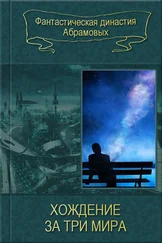


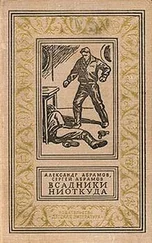
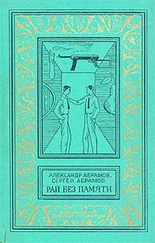
![Александр Абрамов - Юный техник [35 самодельных приборов и моделей для школы, пионерского отряда и дома по оптике, фото, радио, электротехнике и паротехнике.]](/books/416151/aleksandr-abramov-yunyj-tehnik-35-samodelnyh-prib-thumb.webp)
